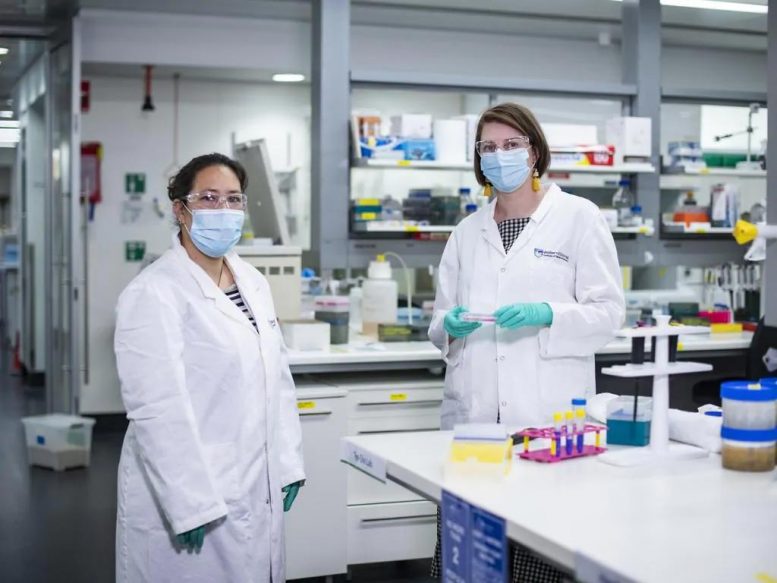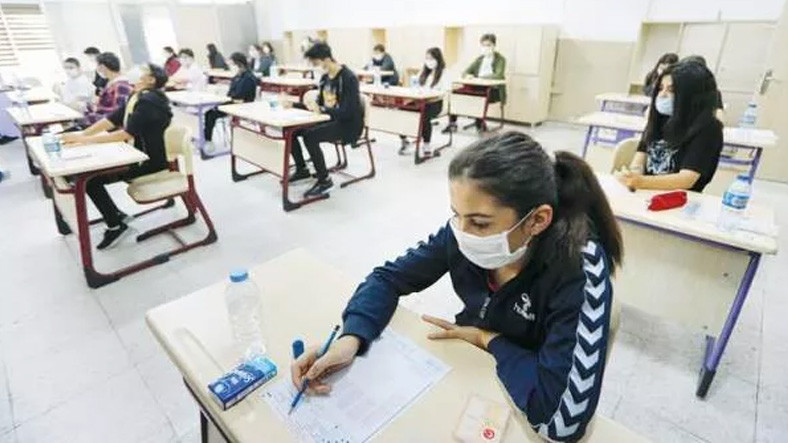The COVID PROFILE study uses blood samples from people in Victoria to examine in detail immune responses to COVID-19. Photo credit: Walter and Eliza Hall Institute for Medical Research
New clinical study aims to better understand COVID-19 immunity
People who have recovered from COVID-19 and their close contacts could hold the key to understanding how immunity to the disease develops, how long it lasts, and what happens when immunity is lost.
The COVID PROFILE study, conducted by the Walter and Eliza Hall Institute, uses blood samples from people in Victoria to examine in detail immune responses to COVID-19 and to show how people are protected from the future – and how long people will last Covid19 infection is protected.
This information is critical to vaccine development – and could explain whether future vaccines can be administered once or whether they need to be repeated on a regular basis, like the annual influenza vaccine. This information is crucial for planning the long-term “COVID normal” on a local and international level.
At a glance
- Melbourne researchers are studying the immunity effects of COVID-19
- The study is recruiting people with COVID-19 and their close contacts who have not contracted the virus
- The research will help guide decisions about vaccine development and other public health actions to fight the virus, including operating in a “COVID-normal” society
Understanding immunity to COVID-19
The study is looking for 300 adult volunteers, both those who have had COVID-19 and those who have had close contacts (such as household members) but did not develop the disease. These participants will be monitored for 12 months after their exposure to COVID-19 through regular blood tests and nasal and throat swabs.
Lead researcher Professor Ivo Mueller said there are big questions in the scientific community about whether people with COVID-19 could be re-infected or how long immunity would protect against the virus.
“Although we know that their immune response protects people after they have recovered from COVID-19, we suspect that this protection wears off over time and re-infection with COVID-19 may be possible. We don’t know how long this immunity lasts and whether it differs between people with severe, mild, or asymptomatic infections, ”he said.

COVID PROFILE researcher Dr. Emily Eriksson and Dr. Vanessa Bryant. Photo credit: Walter and Eliza Hall Institute for Medical Research
“Understanding immunity to COVID-19 is critical to developing vaccination strategies. It will also lead to greater awareness and understanding so that we can better manage this virus in the community.
“If we can predict how immunity to the virus will develop over time, if and when people can be re-infected, and if symptoms are less severe if they are re-infected, we can plan accordingly and stay one step ahead of the virus.” “, he said.
Explanation of various disease outcomes
As researchers around the world try to understand this global pandemic, many important factors remain unknown.
“For a second COVID-19 infection, it can potentially be worse than the first if immunity has waned. Our study will examine carefully whether people could have more severe symptoms if they are infected again, ”said Professor Müller.
Study researcher Dr. Vanessa Bryant said the research is critical to understanding the wide range of symptoms that people with COVID-19 experience.
“Some people become seriously ill and have to be hospitalized, while others are almost completely asymptomatic. If we understand why this is happening, we can identify “biomarkers” that can be used to predict which people are at higher risk of contracting the virus or developing the most severe symptoms, ”she said.
“This will allow us to find new treatments that will strengthen patients’ immune systems and help them recover faster.”
The study is being carried out in partnership with the Royal Melbourne Hospital, the University of Melbourne and the Doherty Institute, and funded by the Walter and Eliza Hall Institute, the World Health Organization’s UNITY study, and philanthropic supporters.
Response to COVID-19
The Walter and Eliza Hall Institute, working with research partners at universities, hospitals, and the private sector, is leading a number of key research responses to COVID-19.
Your researchers are working on better approaches to diagnosing, treating, and preventing the spread of coronavirus, both to combat the current global COVID-19 outbreak and to prepare for future coronavirus outbreaks.



